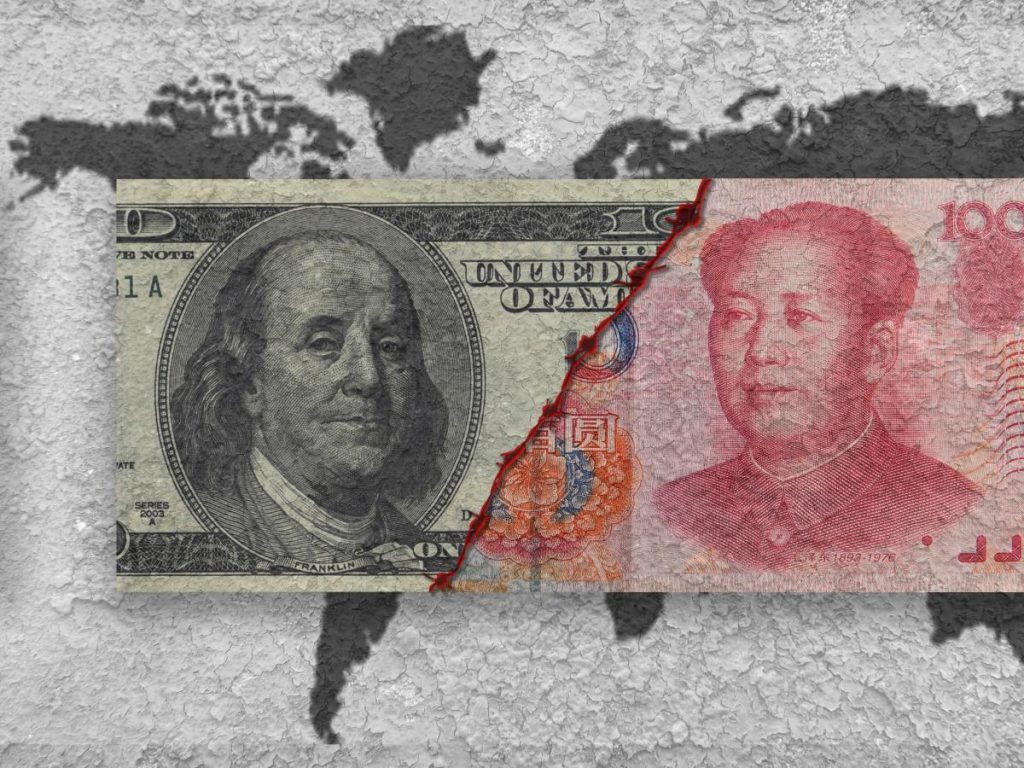China set a record by selling $53.3 billion worth of US Treasurys and agency bonds in the first quarter of this year, as reported by Bloomberg. This move is seen as part of China’s ongoing efforts to reduce its exposure to dollar-denominated assets and diversify its reserves. The country had already been selling off US debt to support its weakening yuan, which has continued to decline against the strengthening dollar. China has been steadily reducing its holdings of US Treasurys, with estimates suggesting that it has sold around $300 billion of US debt between 2021 and mid-2023.
The weakening of the yuan against the dollar has made imports into China more expensive, prompting China to take steps to protect its currency. The recent surge in the value of the US Dollar Index has further exacerbated this trend, as the yuan has fallen even more. This situation has been worsened by US protectionist measures, such as tariffs on Chinese goods, which have contributed to the dollar’s strength. China’s decision to sell off US Treasurys and agency bonds is part of its strategy to reduce its reliance on the US dollar and mitigate the impact of these economic challenges.
In addition to selling off US debt, China is also increasing its investment in gold, which now represents 4.9% of its reserves, the highest level since 2015. This trend aligns with a larger global movement among central banks to diversify their reserves and reduce their exposure to the dollar. The fear of US sanctions, as demonstrated by the restrictions imposed on Russia in 2022, has prompted central banks to seek alternative reserve assets. By investing in gold and other non-dollar-denominated assets, China is taking steps to protect its financial interests and reduce its vulnerability to economic and geopolitical risks.
The escalating trade tensions between China and the US have further incentivized China to diversify its reserves and reduce its reliance on the dollar. The Biden Administration’s imposition of tariffs on Chinese products, along with the promise of even more aggressive tariffs by former President Trump, have created uncertainty in the global economic landscape. In response, China is actively seeking to de-dollarize its reserves and strengthen its position in the international financial system. By selling off US Treasurys and increasing its gold holdings, China is strategically positioning itself to weather any potential economic disruptions and safeguard its financial stability.
Overall, China’s decision to sell off US Treasurys and agency bonds, as well as increase its investment in gold, reflects its broader strategy to reduce its exposure to the dollar and diversify its reserves. The country’s actions are driven by a combination of factors, including the weakening yuan, rising US protectionism, and global economic uncertainty. By taking proactive steps to de-dollarize its reserves and invest in alternative assets, China is working to strengthen its financial position and protect itself against potential economic risks. These developments underscore the evolving dynamics of the global financial system and the shifting balance of power among major economies.


